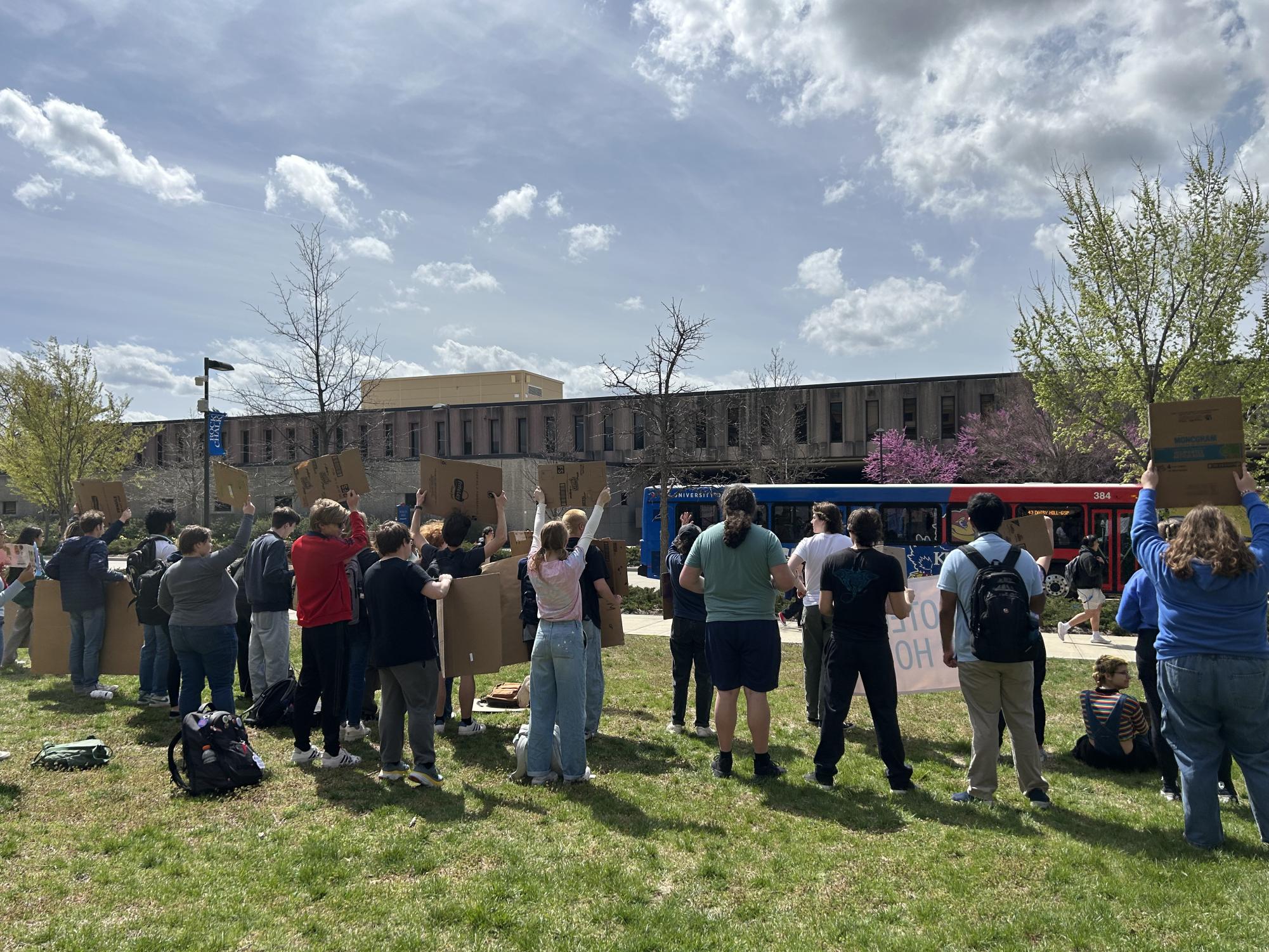‘When they go low, we go high’
This Gender Brown Bag talk began with a simple question from a student, and ended up in a conference paper and even in a soon to be published book.
“It really just started with Sarah walking into my office one day and saying ‘I want to know more about rhetorical criticism, tell me more,’” said Jim Schnoebelen, associate professor in communication studies, “So, I set up a directed study and she analyzed the speech in her own way. It was a really cool experience for me, and for her as an undergraduate, to get that experience.”
Schnoebelen and Sarah Dweik, senior communications major, held their Gender Brown Bag talk from 12:30 p.m. to 1:30 p.m. Tuesday, March 6 in the Lincoln Room.
The two discussed First Lady Michelle Obama’s speech in October of 2016 in New Hampshire. This specific speech was in response to the Access Hollywood tape that had been released involving President Trump and the things he said during the video.
“The Access Hollywood tape was Donald Trump talking really terribly about women,” said Schnoebelen, “And some of the comments, people thought, were tantamount to him saying that he’s engaged in sexual assault, and non-consensual things.”
Showing clips to emphasize their points, the duo took turns speaking about how Michelle Obama handled the topic in a way that she would be heard and respected.
“Although it is extremely gendered, we notice in the political scene that women do have to use that in order to been seen as credible and having a good understanding of things in politics,” said Dweik, “By building that bond with her audience, she was able to prove that sexual assault is a cultural issue, not just a women’s issue.”
The focus of the analysis was on Michelle Obama’s use of feminine style, and the other tactics she used to relate to her audience, such as sharing personal stories and convictions.
“Her use of the feminine style, which made her look more feminine, more culturally acceptable, was used in a way to let her talk about a very taboo, troubling subject matter in a public, political space,” said Schnoebelen, “We look at that speech as an outstanding example of a first lady address on a fairly controversial subject.”
Dweik and Schnoebelen’s participation in this student-faculty collaborative research won’t just end with this talk. Next month they will be presenting their research at the Central States Communication Association in Milwaukee, Wisconsin.
They have also submitted their work to be included in a book about Michelle Obama’s time as First Lady that is set to be published by the end of this year.
“I think that one goal is that people will appreciate the speech- because it was a good speech,” said Schnoebelen. “After that video came out, we didn’t feel good about a lot of things. And it was a speech that made you feel good. It is a good example of also how a political speech can be used to empower an audience if you let it.”
Your donation will support the student journalists of Washburn University. Your contribution will allow us to purchase equipment and cover our annual website hosting costs.











